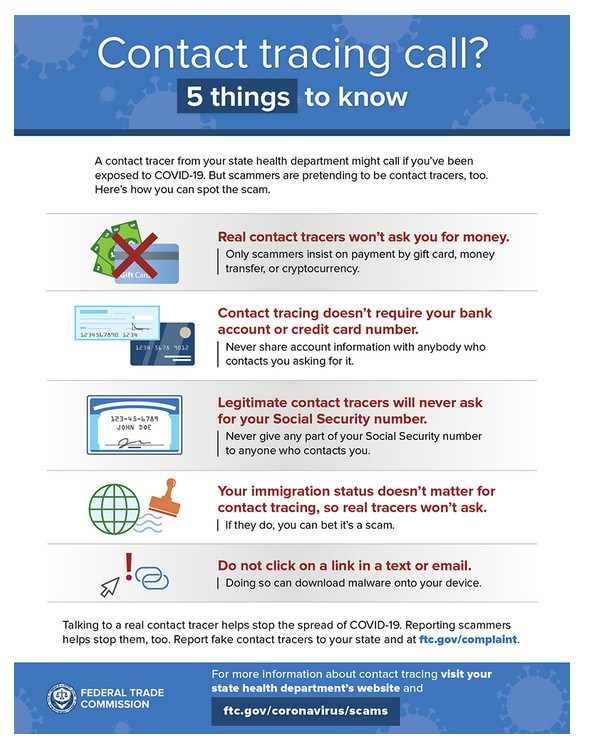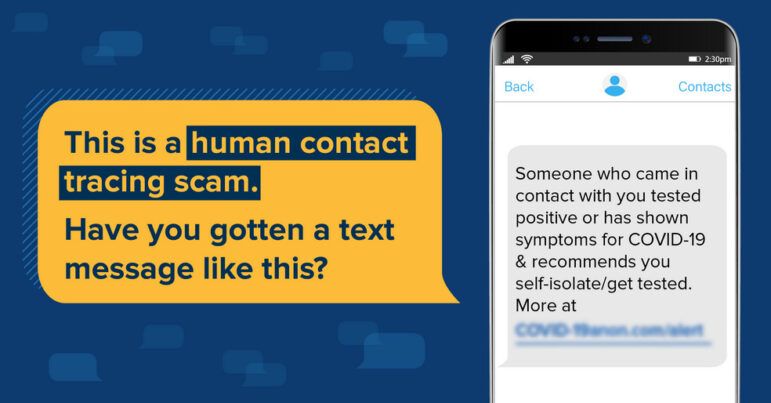Contact tracers, the people who work for state health departments to try to track anyone who may have been exposed to COVID-19, are an important part of the road to recovery.
But scammers are pretending to be contact tracers. They’re trying to steal your identity, your money – or both.
Luckily, there are ways to tell the difference between a real contact tracer and a scammer.

Legitimate texts you will receive from authorized contact tracers will not ask you to click on a link. Nor will they ask you for money or information like your Social Security number, bank account or credit card number. Anyone who does so is a scammer.
But scammers may send spam text messages that ask you to click a link. Don’t click on any link from someone purporting to be a contract tracer.
Legitimate contact tracers are usually hired by a state’s department of public health. They work with an infected person to get the names and phone numbers for everyone that infected person came in close contact with while the possibly infectious.
Click here for the CT Dept of Health.
A contact tracer might get in touch to discuss results of a test you know you took, or because someone you’ve been in contact with tested positive. Depending on how your state has set up its program, legitimate contact tracers may call, email, text, or visit your home to collect information. They may ask you for:
- your name and address
- health information
- the names of places and people you have visited
Scammers will ask you to do more. Here are some things to do to protect yourself from fake contact tracers.
- Don’t pay a contact tracer. Anyone who says you need to pay is a scammer, plain and simple.
- Don’t give your Social Security number or financial information. There’s no reason for a legit contact tracer to need your Social Security number, bank account, or credit card number.
- Don’t share your immigration status. Legit contact tracers don’t need — and won’t ask for — this information.

- Don’t click on links or download anything sent from a contact tracer. Real tracers will only send you texts or emails that say they’ll be calling you — not ask you to click or download anything.
Unlike a legitimate text message from a health department, which only wants to let you know they’ll be calling, this spam message includes a link to click.

Don’t take the bait. Clicking on the link will download software onto your device, giving scammers access to your personal and financial information. Ignore and delete these scam messages.